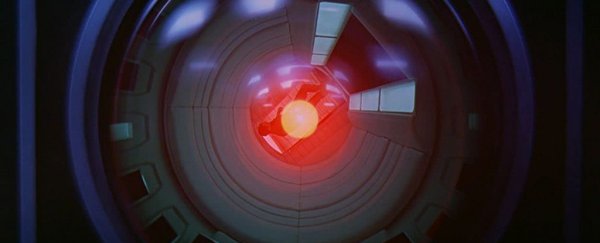The idea of artificial intelligence overthrowing humankind has been talked about for many decades, and scientists have just delivered their verdict on whether we'd be able to control a high-level computer super-intelligence. The answer? Almost definitely not.
The catch is that controlling a super-intelligence far beyond human comprehension would require a simulation of that super-intelligence which we can analyse. But if we're unable to comprehend it, it's impossible to create such a simulation.
Rules such as 'cause no harm to humans' can't be set if we don't understand the kind of scenarios that an AI is going to come up with, suggest the authors of the new paper. Once a computer system is working on a level above the scope of our programmers, we can no longer set limits.
"A super-intelligence poses a fundamentally different problem than those typically studied under the banner of 'robot ethics'," write the researchers.
"This is because a superintelligence is multi-faceted, and therefore potentially capable of mobilising a diversity of resources in order to achieve objectives that are potentially incomprehensible to humans, let alone controllable."
Part of the team's reasoning comes from the halting problem put forward by Alan Turing in 1936. The problem centres on knowing whether or not a computer program will reach a conclusion and answer (so it halts), or simply loop forever trying to find one.
As Turing proved through some smart math, while we can know that for some specific programs, it's logically impossible to find a way that will allow us to know that for every potential program that could ever be written. That brings us back to AI, which in a super-intelligent state could feasibly hold every possible computer program in its memory at once.
Any program written to stop AI harming humans and destroying the world, for example, may reach a conclusion (and halt) or not – it's mathematically impossible for us to be absolutely sure either way, which means it's not containable.
"In effect, this makes the containment algorithm unusable," says computer scientist Iyad Rahwan, from the Max-Planck Institute for Human Development in Germany.
The alternative to teaching AI some ethics and telling it not to destroy the world – something which no algorithm can be absolutely certain of doing, the researchers say – is to limit the capabilities of the super-intelligence. It could be cut off from parts of the internet or from certain networks, for example.
The new study rejects this idea too, suggesting that it would limit the reach of the artificial intelligence – the argument goes that if we're not going to use it to solve problems beyond the scope of humans, then why create it at all?
If we are going to push ahead with artificial intelligence, we might not even know when a super-intelligence beyond our control arrives, such is its incomprehensibility. That means we need to start asking some serious questions about the directions we're going in.
"A super-intelligent machine that controls the world sounds like science fiction," says computer scientist Manuel Cebrian, from the Max-Planck Institute for Human Development. "But there are already machines that perform certain important tasks independently without programmers fully understanding how they learned it."
"The question therefore arises whether this could at some point become uncontrollable and dangerous for humanity."
The research has been published in the Journal of Artificial Intelligence Research.
